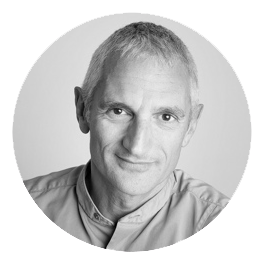As a registered London Osteopath in W1 and North London, I help my patients understand, overcome and prevent a myriad of issues and the symptoms they may cause.
Osteopathy is a validated, regulated and increasingly researched medical therapy which aims to address pain and other symptoms caused by a range of disorders including those incurred in the workplace, the sporting world and during pregnancy as well as general lifestyle related conditions.
5 things you may not know about osteopathy
So whether you are familiar with osteopathy or not here are 5 things you may not know:
1. The title ‘osteopath’ is registered by law
The title ‘osteopath’ is protected by law (Protection of title). To practise in the UK, an osteopath must be registered with the General Osteopathic Coucil (GOsC). It is a criminal offence for a person to claim they are an osteopath unless they are on the GOsC Register and are liable to prosecution.
2. Osteopaths undertake rigorous training
You can’t become an osteopath overnight. Osteopaths study to Degree Level leading to a Bachelor of Science Honours Degree in Osteopathy or a Masters Degree. A degree course may be taken over four or five years and will include anatomy, physiology, pathology, pharmacolog, nutrition and biomechanics with at least 1,000 hours of clinical training.
3. Seven million osteopathy consultations in the UK per year
Osteopath registered with General Osteopathic Council and who practise in the UK carry out more than seven million consultations every year. As of 4 March 2014 there are 4,815 osteopaths registered on the UK Statutory Register of Osteopaths.
4. Osteopaths work to restore your body to a state of balance
Osteopaths work to restore your body to a state of balance, without the use of drugs or surgery where possible. For a patients body to work well an osteopath believes that the body’s structure must also work well. Touch, physical manipulation, stretching and massage are used by an osteopath to increase joint mobility, relieve muscle tension, enhance the blood and nerve supply to tissues and to help the body’s own healing mechanisms. In addition to the classical Osteopathic approaches I use, when appropriate, Western Accupuncture and/or Low Level Laser Therapy.
To aid recovery, promote health and prevent symptoms recurring, osteopaths may also provide advice on posture and exercise.
5. Many private health insurance schemes cover osteopathy treatment
People often don’t realise that osteopathy is a fully recognised and respected method of diagnosis and treatment and that many private health insurance schemes do cover the treatment.
Visit an experienced London Osteopath in W1
If you are suffering pain or discomfort and you would like further information on how I may help you or to book an Osteopathy appointment at either of my osteopathy clinic in London W1 please feel free to send me a message or call me on 020 8815 0979. I also have a clinic in North London if this is more convenient for you.

